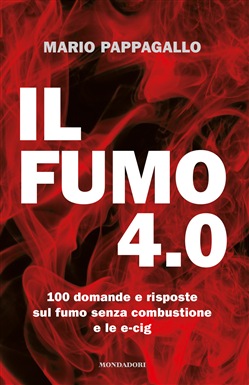
According to the World Health Organization, about 8 million people die each year from smoking, about 3 times more than the deaths caused by Covid-19 in its first year of appearance. Certainly the people who died from Covid -19 would have been many more if there had not been the various lock downs, but smoking, as Umberto Veronesi described it, “is worse than an epidemic”.
The journalist and writer Mario Pappagallo published the first edition of his book “Il fumo 4. 0” for Mondadori, in January 2021: in his book he counts the numbers of the damages caused by smoking, comparing the classic cigarette with the 4.0 one, precisely the e cig, which proves to be a winner in terms of effectiveness and safety, and he tells the history of smoking, from Columbus who brought tobacco to Europe to Jean Nicot, who introduced the plant in France and the substance Nicotine was dedicated to him. Each piece of information is based on precise evidence and opens up new possible scenarios in the era of Covid 19: in fact, if before Covid-19 the risk of becoming a smoker was decreasing, now, due to isolation and loneliness, the “cigarette” is likely to become or return to be the favorite companion. Alarm therefore, because this impacts on lifestyle and is a risk factor. And more, with Covid19, and in the book is addressed, another growing epidemic due to sedentariness, inertia and the need to fill a gap: obesity, growing, knowing how obesity is another risk factor for complications from SARS-COV2.
A question-and-answer book, necessary to understand the damage of these addictions (to smoking and to food), which however gathers all the discomfort for pronounced in the title of a book “It’s easy to quit smoking, if you know how”. It was already difficult pre-Covid. Now more: maybe e-cigs are a fair substitute palliative, as they are less harmful than smoking. The best, however, is to make a list of the healthy things we like to do – the 5 things: read a good book, phone a loved one, take a walk in the park or in nature, maintain a healthy circadian rhythm, and get away from too many sources of information that are just as poisonous as smoking.
